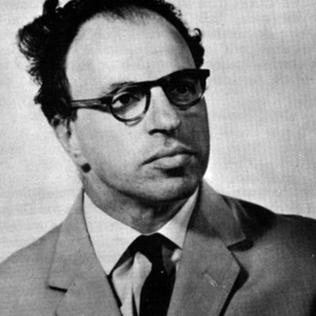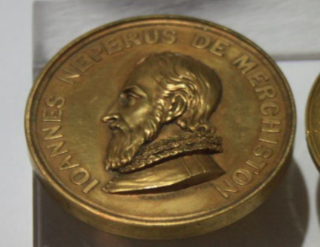This article does not cite any sources .(December 2013) (Learn how and when to remove this template message) |
This article does not cite any sources .(December 2013) (Learn how and when to remove this template message) |

Ann Bishop was a British biologist from Girton College at the University of Cambridge and a Fellow of the Royal Society, one of the few female Fellows of the Royal Society. She was born in Manchester but stayed at Cambridge for the vast majority of her professional life. Her specialties were protozoology and parasitology; early work with ciliate parasites, including the one responsible for blackhead disease in the domesticated turkey, lay the groundwork for her later research. While working towards her doctorate, Bishop studied parasitic amoebae and examined potential chemotherapies for the treatment of amoebic diseases including amoebic dysentery.

Sir Hermann Bondi was an Anglo-Austrian mathematician and cosmologist.
Arthur Roy Clapham, CBE FRS, was a British botanist. Born in Norwich and educated at Downing College, Cambridge, Clapham worked at Rothamsted Experimental Station as a crop physiologist (1928–30), and then took a teaching post in the botany department at Oxford University. He was Professor of Botany at Sheffield University 1944–69 and vice chancellor of the university during the 1960s. He coauthored the Flora of the British Isles, which was the first, and for several decades the only, comprehensive flora of the British Isles published in 1952 and followed by new editions in 1962 and 1987. In response to a request from Arthur Tansley, he coined the term ecosystem in the early 1930s.

Melvin Ellis Calvin was an American biochemist known for discovering the Calvin cycle along with Andrew Benson and James Bassham, for which he was awarded the 1961 Nobel Prize in Chemistry. He spent most of his five-decade career at the University of California, Berkeley.

Gerhard Johannes Paul Domagk was a German pathologist and bacteriologist. He is credited with the discovery of Sulfonamidochrysoidine (KI-730), the first commercially available antibiotic and marketed under the brand name Prontosil, for which he received the 1939 Nobel Prize in Physiology or Medicine.

Her Majesty's Solicitor General for England and Wales, known informally as the Solicitor General, is one of the Law Officers of the Crown, and the deputy of the Attorney General, whose duty is to advise the Crown and Cabinet on the law. He or she can exercise the powers of the Attorney General in the Attorney General's absence.
The Oxford University Press published a long series of poetry anthologies, dealing in particular with British poetry but not restricted to it, after the success of the Oxford Book of English Verse (1900). The Oxford poetry anthologies are traditionally seen as 'establishment' in attitude, and routinely therefore are subjects of discussion and contention. They have been edited both by well-known poets and by distinguished academics. In the limited perspective of canon-formation, they have mostly been retrospective and well-researched, rather than breaking fresh ground.
More Letters of Charles Darwin, a sequel to The Life and Letters of Charles Darwin of 1887, was a book in two volumes, published in 1903, edited by Francis Darwin and A. C. Seward, containing as the title implies, additional publications of 782 letters from the correspondence of Charles Darwin.

The Linnean Medal of the Linnean Society of London was established in 1888, and is awarded annually to alternately a botanist or a zoologist or to one of each in the same year. The medal was of gold until 1976, and is for the preceding years often referred to as "the Gold Medal of the Linnean Society", not to be confused with the official Linnean Gold Medal which is seldom awarded.

The Keith Medal was a prize awarded by the Royal Society of Edinburgh, Scotland's national academy, for a scientific paper published in the society's scientific journals, preference being given to a paper containing a discovery, either in mathematics or earth sciences.

The Royal Anthropological Institute of Great Britain and Ireland (RAI) is a long-established anthropological organisation, with a global membership. Its remit includes all the component fields of anthropology, such as biological anthropology, evolutionary anthropology, social anthropology, cultural anthropology, visual anthropology and medical anthropology, as well as sub-specialisms within these, and interests shared with neighbouring disciplines such as human genetics, archaeology and linguistics. It seeks to combine a tradition of scholarship with services to anthropologists, including students.
Richard le Scrope, Bishop of Lichfield and Archbishop of York, was executed in 1405 for his participation in the Northern Rising against King Henry IV.

The Church of St John the Evangelist is a Scottish Episcopal church in the centre of Edinburgh, Scotland. It is sited at the west end of Princes Street at its junction with Lothian Road, and is protected as a category A listed building.
The 1937 Coronation Honours were awarded in honour of the coronation of George VI.
The High Sheriff of Wexford was the British Crown's judicial representative in County Wexford, Ireland from the 16th century until 1922, when the office was abolished in the new Irish Free State and replaced by the office of Wexford County Sheriff. The sheriff had judicial, electoral, ceremonial and administrative functions and executed High Court Writs. In 1908, an Order in Council made the Lord-Lieutenant the Sovereign's prime representative in a county and reduced the High Sheriff's precedence. However the sheriff retained his responsibilities for the preservation of law and order in the county. The usual procedure for appointing the sheriff from 1660 onwards was that three persons were nominated at the beginning of each year from the county and the Lord Lieutenant then appointed his choice as High Sheriff for the remainder of the year. Often the other nominees were appointed as under-sheriffs. Sometimes a sheriff did not fulfil his entire term through death or other event and another sheriff was then appointed for the remainder of the year. The dates given hereunder are the dates of appointment. All addresses are in County Wexford unless stated otherwise.
The New Year Honours 1922 were appointments by King George V to various orders and honours to reward and highlight good works by members of the British Empire. They were published on 30 December 1921.